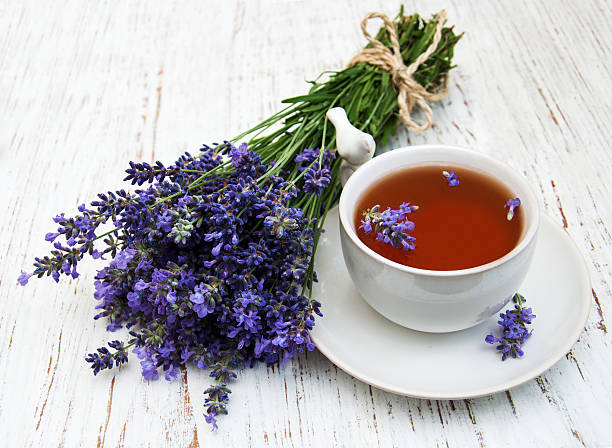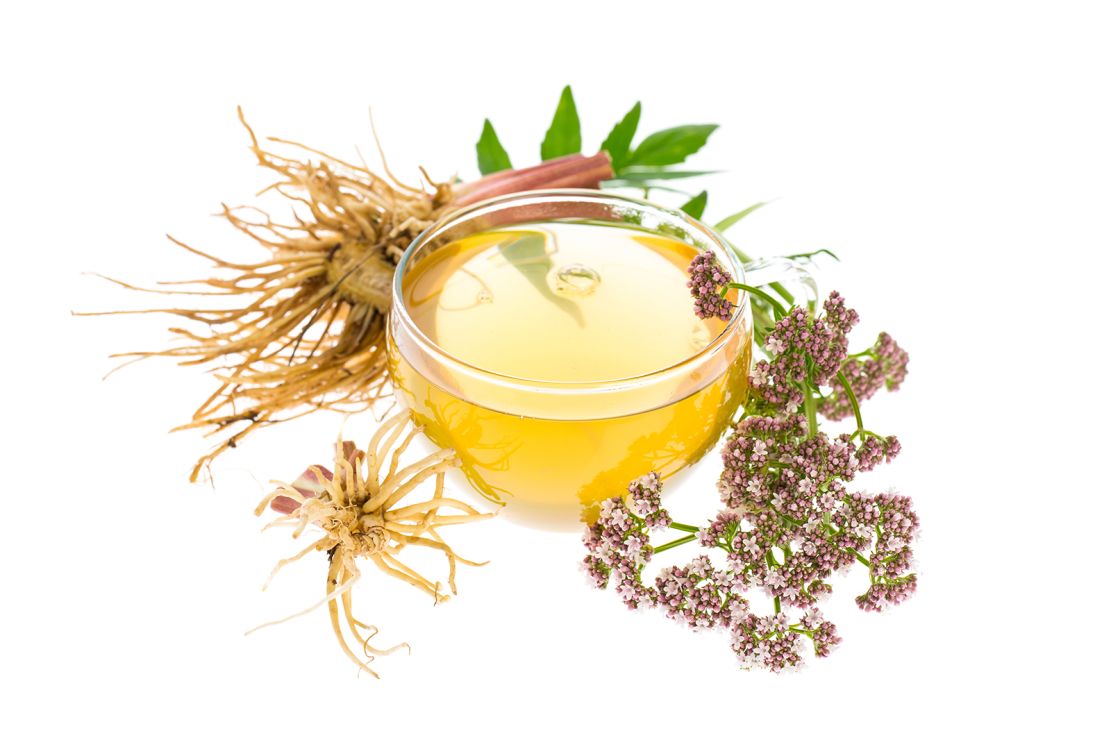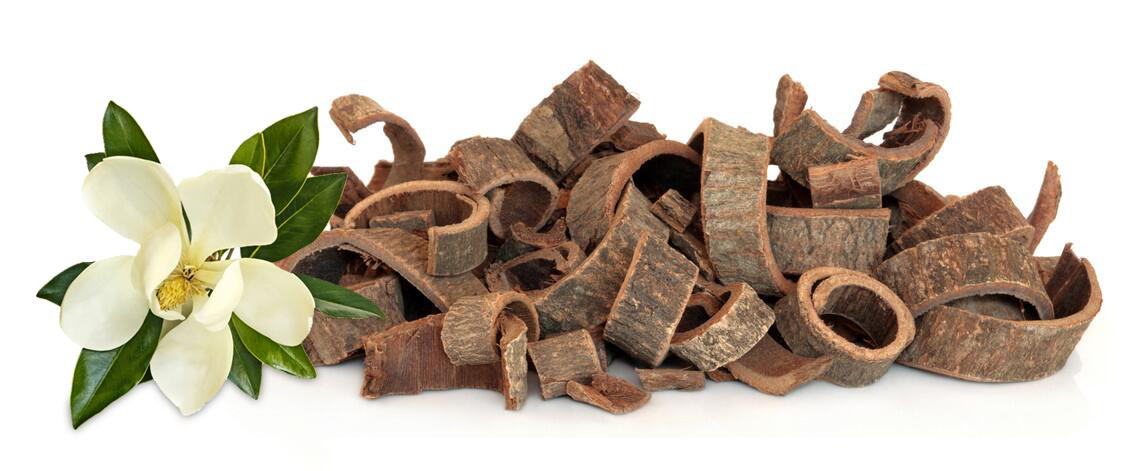Herbal teas are a popular choice for sleep because they contain little to no caffeine, unlike some teas such as black tea which have caffeine levels close to those of coffee. Below is a list of teas that are good for sleep and offer several other health benefits.
1. Chamomile tea helps you relax and sleep well.
Chamomile has been used as medicine for thousands of years, beneficial for digestion and insomnia.
Although research on this topic is limited, drinking chamomile tea has been shown to improve sleep quality. The calming effect of chamomile is due to a flavonoid called apigenin. This compound binds to benzodiazepine receptors in the brain, which may help reduce anxiety and induce sleep.
Studies have shown that postpartum women who drink chamomile tea report reduced symptoms of depression as well as improved sleep quality. Similar results were found in older adults, who reported better sleep quality than the control group who did not drink chamomile tea.
2. Lavender tea

Lavender tea can help you sleep better and fall asleep more easily.
Although commonly used in aromatherapy, lavender can also be used to make a relaxing tea that can help you get a good night's sleep.
Lavender's sleep-inducing properties include interacting with the neurotransmitter GABA (gamma-aminobutyric acid) to help calm the brain and promote sleep. It also acts as an anti-anxiety agent, or as a mild anxieties reliever and sedative.
3. Valerian root tea
Like chamomile, valerian root also has a long history in medicine, beneficial for stress and anxiety. Valerian root can help you fall asleep faster and improve sleep quality. Made from dried valerian herb, valerian tea has a very distinctive flavor and smell that can be unpleasant for some people. Adding a little honey, almond milk, or maple syrup helps improve the taste.
Valerian root is often combined with other calming herbs, such as hops. When taken as a supplement or drunk as a tea, valerian increases GABA levels in the brain to reduce anxiety and promote feelings of calm and relaxation.
Valerian root helps promote sleep thanks to two natural sedatives found in the herb, known as valepotriates and sesquiterpenes. However, it's important not to take valerian root tea with certain medications or supplements, such as benzodiazepines like Xanax or barbiturates like morphine, as they can cause adverse effects when taken together.

Valerian root tea promotes restful sleep.
4. Green tea
Drinking green tea throughout the day instead of at night can help reduce fatigue and improve sleep quality. This is because a compound in green tea called theanine helps relax the brain by reducing stress-related hormones and neuronal excitability. However, make sure it's low in caffeine – some blended green teas, such as matcha, are high in caffeine and can cause wakefulness if consumed too late in the day.
The benefits of green tea for the brain extend beyond mental health; it's also excellent for sleep health. Additionally, polyphenols—compounds that promote digestion and brain health—in green tea help reduce inflammation and oxidative stress in the body, as well as aiding in weight loss.
5. Passionflower tea helps reduce insomnia.
Passionflower tea has similar effects on the body to chamomile tea. Like chamomile, passionflower contributes to reducing anxiety in the brain thanks to flavonoids that bind to benzodiazepine receptors in the brain.
Some studies have found that when combined with other herbal supplements such as valerian, passionflower is also effective in reducing short-term insomnia, similar to traditional sleep aids. However, this study used capsules instead of tea – tea is less concentrated than capsules but still has a positive effect on sleep.
6. Magnolia bark tea

Magnolia bark tea helps promote restful sleep.
Magnolia bark has been used as a sleep aid for thousands of years. Its main compound, honokiol, binds to GABA receptors in the brain, helping you fall asleep faster.
Similar to valerian root tea, magnolia bark tea may have an unpleasant taste for some people. However, the tea can be sweetened with honey or maple syrup if this flavor is not to be appreciated.
Some people claim that magnolia bark helps them stay more alert at night; however, the time it takes to fall back asleep is significantly reduced.
7. Lemon mint tea (or perilla tea)
Lemon balm (Perilla frutescens) is actually a member of the mint family. It's an herb native to southern Europe, and in Vietnam it's commonly known as lemon mint. Lemon balm leaves are often used in tea and essential oil forms, and are frequently used as an antibacterial agent to treat infections as well as to treat sleep problems.
Drinking perilla tea in the evening can help reduce symptoms of insomnia, anxiety, depression, or restlessness.
8. Ginger tea
Ginger is excellent for treating nausea and sore throats. It's also an anti-inflammatory food and rich in antioxidants. Ginger tea is a natural, caffeine-free beverage, so it won't affect your sleep.
9. Lemongrass Tea
In addition to being used to promote healthy rest, lemongrass also has antioxidant, anti-inflammatory, and antibacterial properties. It can also promote healthy digestion and healthy cholesterol levels.
10. Peppermint Tea
Peppermint tea is caffeine-free and can help you relax for a good night's sleep. It's also great for soothing stomach aches and relieving allergies and congested sinuses. The peppermint essential oil also helps freshen breath.
While many types of tea are said to promote sleep, what works best for one person may not work for another. Furthermore, simply drinking tea doesn't guarantee a good night's sleep, so maintaining good sleep hygiene and a consistent sleep schedule is essential to truly get the best support from your evening cup of tea.
Source: https://giadinh.suckhoedoisong.vn/10-loai-tra-giup-ngu-ngon-172241017213053319.htm





































































































Comment (0)